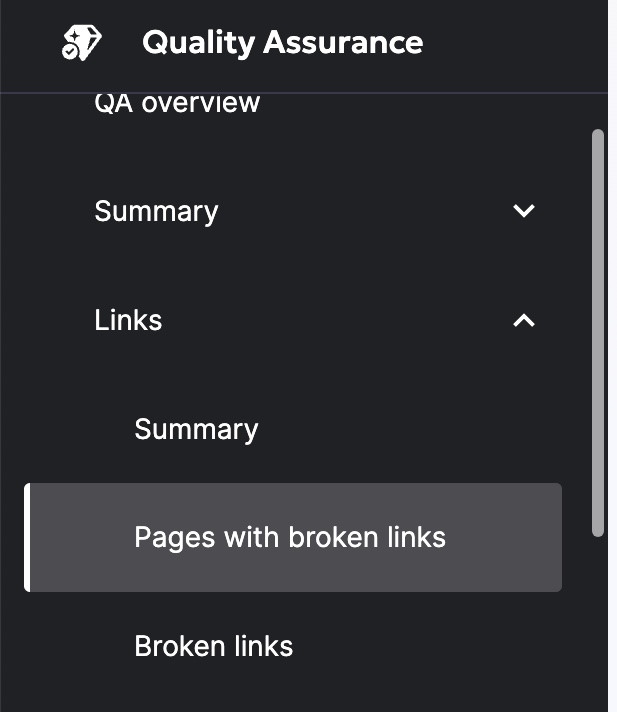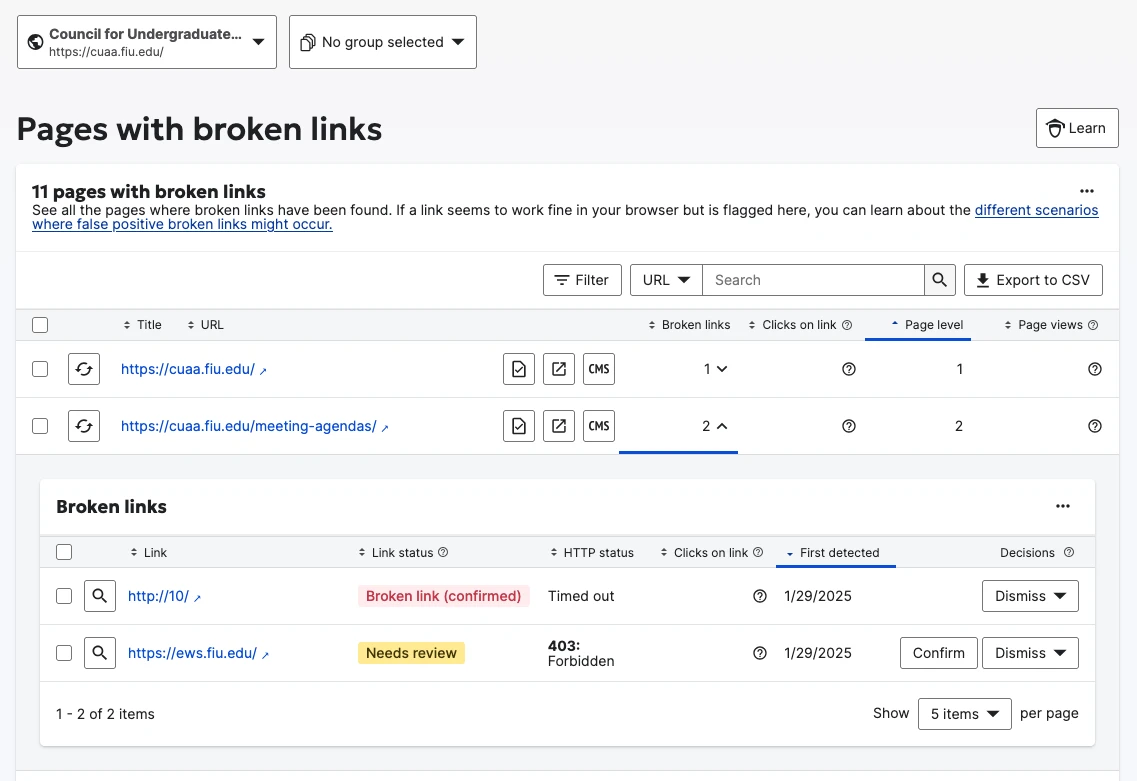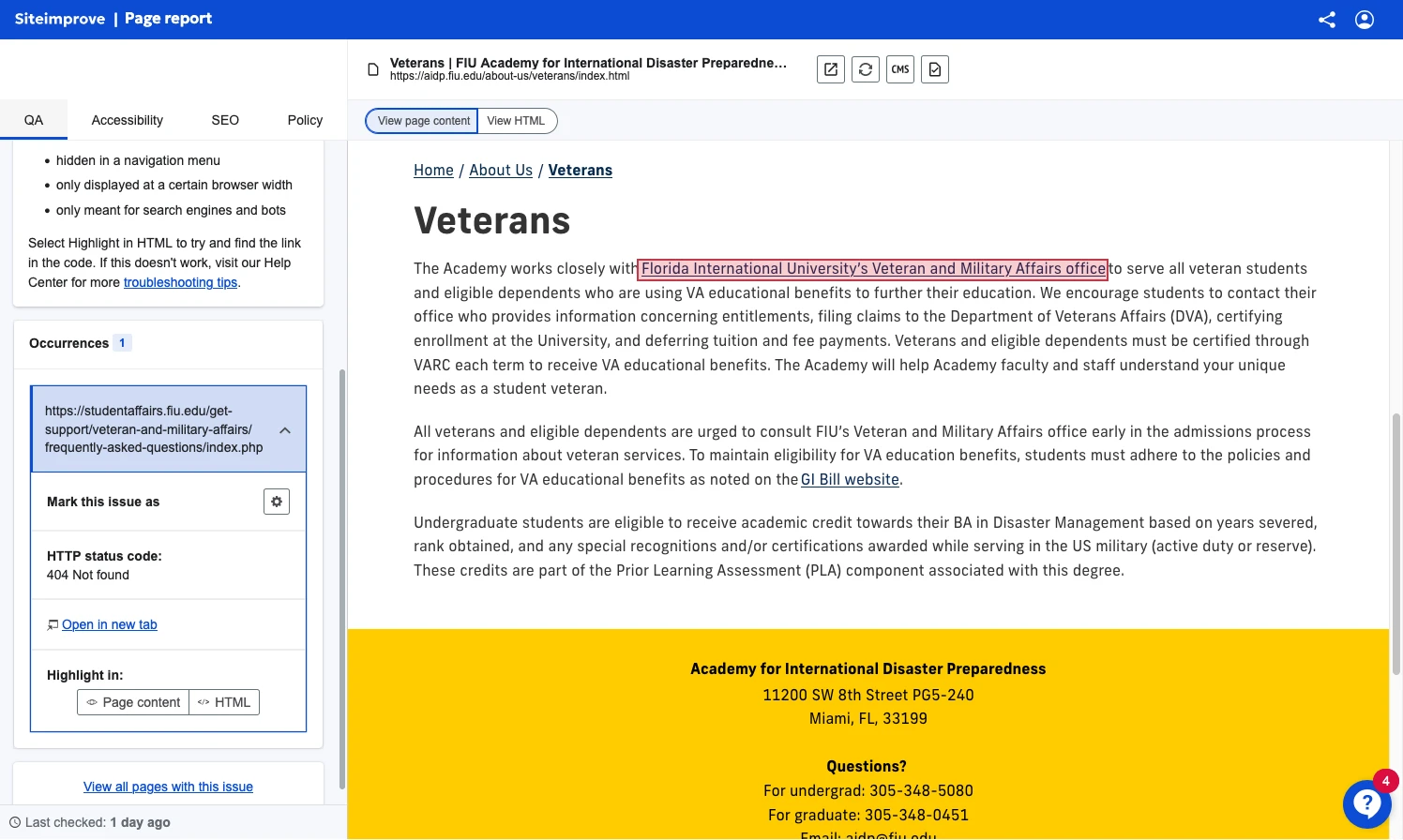Broken links might be one of the most embarrassing complaints you can get from your users. All that work setting up a website and somehow something went wrong. Don’t panic, it might not even be your fault! Links can go bad over time and every site needs regular maintenance.
Whe looking for broken links, Google Analytics can bring it to your attention when a 404 page is your top-visited page, but it can't tell you where the broken link is coming from. It also can't track broken links to other websites. In Cascade, you may have seen there is a Broken Links report, but we have pivoted away from it because it's a bit too resource intensive for our hosting configuration.
The best place to look for broken links is Siteimprove. Siteimprove offers a much easier way to actually find and fix broken links, and all editors with access to Cascade should have access to Siteimprove.
Checking for Broken Links in Siteimprove
First, find and select your site in the box next to the search bar in the top left.

Open the Quality Assurance tab, click Links and then click Pages with broken links.

From here, you can get a report of all broken links on your website, separated by page. This report will include both internal links (those to other pages on your website) and external links (those to other websites).
Find the highlighted broken link(s).

No need to search through text! The report tells you where your broken link is located on the page.

Go directly into Cascade to fix it by clicking the button labeled CMS

Now that you know where the broken link is, you can use the CMS button to open the page with the error on Cascade. Just edit the link to fix the bad URL and you're set. Don't forget to publish the page!
What's next?
Siteimprove can send you weekly reports about broken links so you’re never caught off guard. You may have also seen the broken links referenced in the "quick wins" reports you're already receiving from Siteimprove. If you're interested in receiving a Siteimprove report of broken links, reach out to DigiComm.
Getting more familiar with Siteimprove will help you solve errors before they become a problem, so we always suggest checking out our Siteimprove blog posts if you're a site manager.
